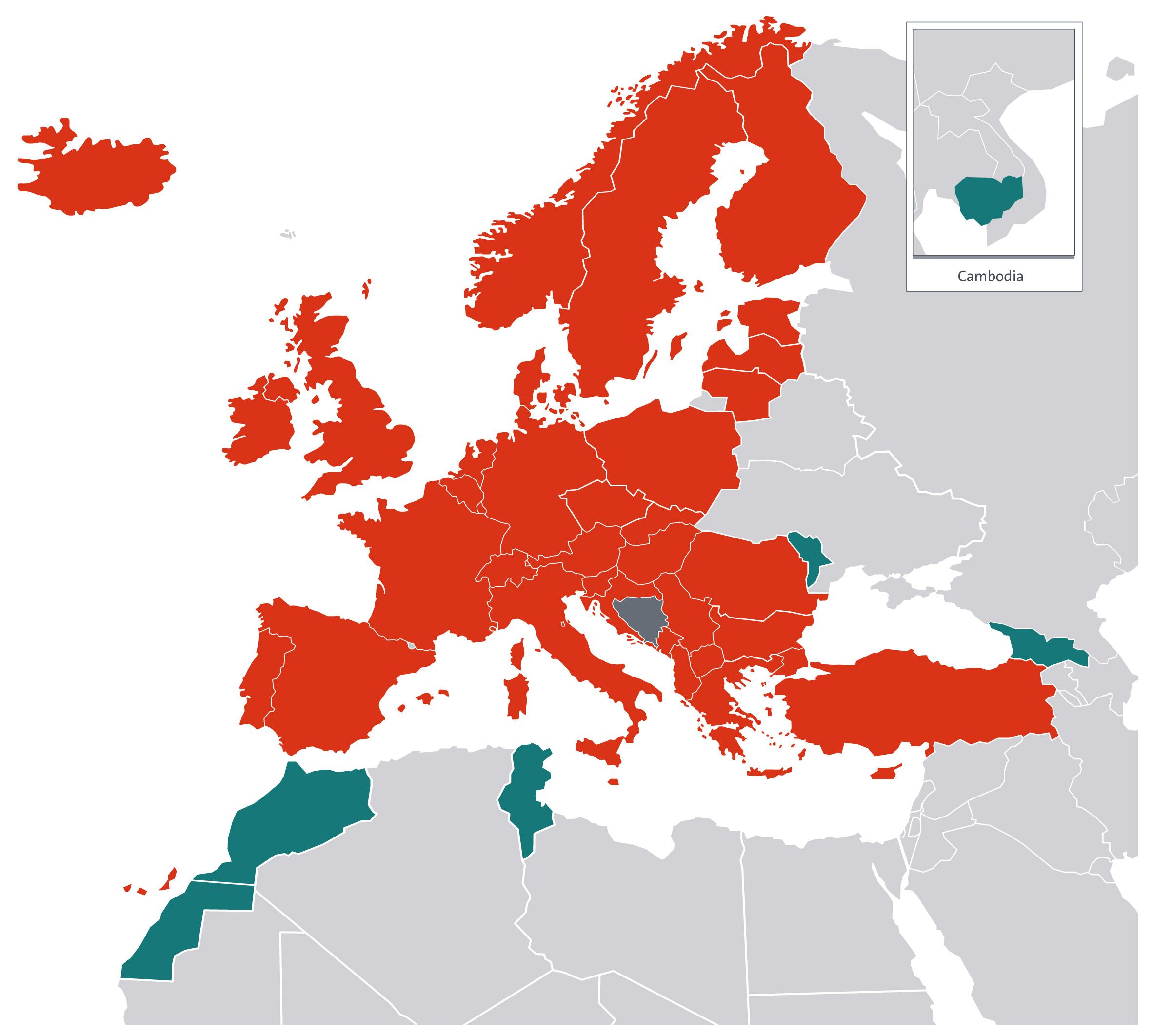Unitary Patent
The first European patents with unitary effect registered by the EPO on or after 1 June 2023 will take effect in the 17 EU Member States participating in enhanced co‑operation and having ratified the Agreement on a Unified Patent Court (UPC Agreement) by that date. It is expected that more EU Member States will ratify the UPC Agreement in the coming years, so that eventually Unitary Patents will make it possible to get patent protection in up to 25 EU Member States by submitting a single request to the EPO.
The new Unitary Patent is based on the European patent granted by the EPO under the rules of the European Patent Convention (EPC), so nothing changes in the pre-grant phase and the same high standards of quality search and examination apply. After a European patent is granted, the patent proprietor can request unitary effect, thereby getting a European patent with unitary effect (Unitary Patent) that provides uniform patent protection in initially 17 EU Member States.
Territorial scope of European patents and those with unitary effect
- Member states of the EPO (39)
-

The EPO currently has 39 member states, in addition to one extension state and five validation states.
- States in enhanced co-operation (25)
-
The 25 states participating in enhanced cooperation to bring about the Unitary Patent system are: Austria, Belgium, Bulgaria, Cyprus, Czech Republic, Denmark, Estonia, Finland, France, Germany, Greece, Hungary, Ireland, Italy, Latvia, Lithuania, Luxembourg, Malta, the Netherlands, Poland, Portugal, Romania, Slovakia, Slovenia, Sweden.
- Current states in the UP and UPC system (17)
-
The 17 states in enhanced cooperation which already ratified the Agreements and will participate in the Unitary Patent when it starts are: Austria, Belgium, Bulgaria, Denmark, Estonia, Finland, France, Germany, Italy, Latvia, Lithuania, Luxembourg, Malta, the Netherlands, Portugal, Slovenia, Sweden.
Reducing complexity and lowering costs
Since the EPC's entry into force on 7 October 1977, inventors and innovating companies have been able to obtain European patents by means of a centralised patent granting procedure. The EPO grants a European patent after centralised examination of the European patent application, saving inventors and innovating companies the cost of filing national patent applications with the national offices of EPC contracting states while ensuring the high quality of the patents granted.
However, a European patent granted by the EPO must be validated and maintained individually in each country where the patent proprietor wishes it to take effect. This is a complex and potentially very costly process: validation requirements differ between countries and can lead to high direct and indirect costs, including translation costs, validation fees (i.e. fees due in some member states for publication of the translations) and associated representation costs, such as the attorney fees charged for the administration of the patent (i.e. payment of national renewal fees). These costs can be considerable and depend on the number of countries where the patent proprietor wishes to validate the European patent.
Unitary Patents remove the need for complex and costly national validation procedures.
- The EPO is in charge of the technical operation of the Unitary Patent and acts as a one-stop-shop, allowing for a simple registration of a Unitary Patent.
- No fees are due for the filing and examination of the request for unitary effect or for registration of a Unitary Patent.
- No post-grant translations will be required after a six-year transitional period. During this period, a translation will be required for information only and will not have any legal effect.
- For EU-based SMEs, natural persons, non-profit organisations, universities and public research organisations a new compensation scheme covers costs related to the translation of the patent application if it was filed in an official EU language other than English, French or German. They are paid a lump sum of EUR 500 when their Unitary Patent is registered.
- Unitary Patents are not subject to the currently fragmented renewal fee system: there is only one procedure and one deadline, all payments are made in euros and there is no obligation to use a representative.
- The renewal fees have been set at a very competitive level and are particularly attractive for the first ten years, the average lifetime of a European patent. Applicants also save on indirect costs. The more countries a patent proprietor wants to validate their European patent in, the greater the savings by opting for a Unitary Patent.
- All post-grant administration is handled centrally by the EPO, further reducing costs and administrative formalities.
- The online register includes information on the legal status of Unitary Patents – notably on licences and transfers. This encourages technology transfer and investment in innovation.
- Unitary Patents confer truly uniform protection since the substantive patent law – particularly the rights conferred by the Unitary Patent and any limitations of these rights and the remedies available in cases of infringement – has been harmonised in the UPC Agreement.


